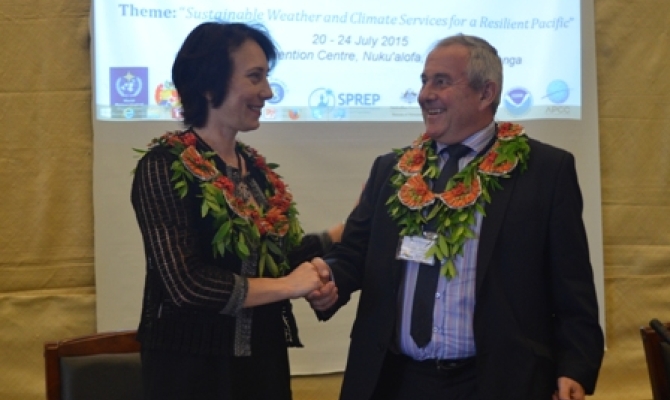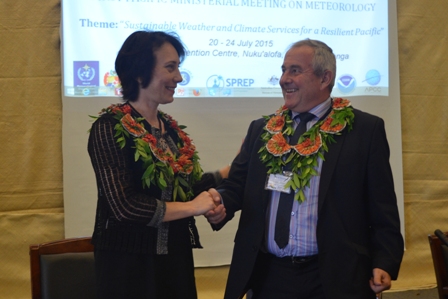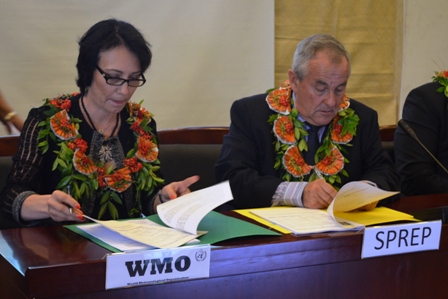
Climate Change Resilience
24 July, 2015, Nuku’alofa, Tonga - The World Meteorological Organization and the Secretariat of the Pacific Regional Environment Programme formalised an agreement in Tonga today. The PacificMet Desk Partnership will manage and implement a programme of actions over a two year period to help ensure capacities and mechanisms for climate services production and delivery are in place in Small Islands Developing States, namely, the Pacific islands.
The range of actions are in line with the Environment Canada funded Programe for implementing the Global Framework for Climate Services (GFCS) at Regional and National Scales, implemented by WMO.
 Dr. Elena Manaenkova, WMO with Mr. David Sheppard, SPREP
Dr. Elena Manaenkova, WMO with Mr. David Sheppard, SPREP“More and more the vital role played by our Pacific Meteorological Services across the region grows stronger, with the information they provide we are able to prepare ourselves not only for hazardous weather events but also your day to day household preparations,” said Mr. David Sheppard, Director-General of SPREP.
“With support like this from the World Meteorological Organization and the Government of Canada, we are able to take concrete steps in advancing our Pacific Met Services. Ultimately it is our Pacific island communities, businesses and households that will benefit.”
Over the two year period the range of activities to be undertaken include the development of a report on the status of climate capacity in the Pacific region; a regional consultations on the future climate outlook related to water, agriculture and health; three Pacific island countries will be the subject of climate stakeholder consultations, the development of national drought policies will be supported as well as a regional training on basic Information Technology knowledge for the production of climate services.

“Working with SPREP as a regional partner is critical for us as translating the actions and work from the regional to the national level is extremely important for us to make progress,” said Dr. Elena Manaenkova the Assistant Secretary General of the World Meteorological Organization.
“Though working with SPREP this also allows us to ensure that we are in harmony with other projects and actions happening in the region. We’ve made great accomplishments through this partnership and we look forward to what is to come.”
The project will end in March, 2017 with nine outputs to be completed over this duration.